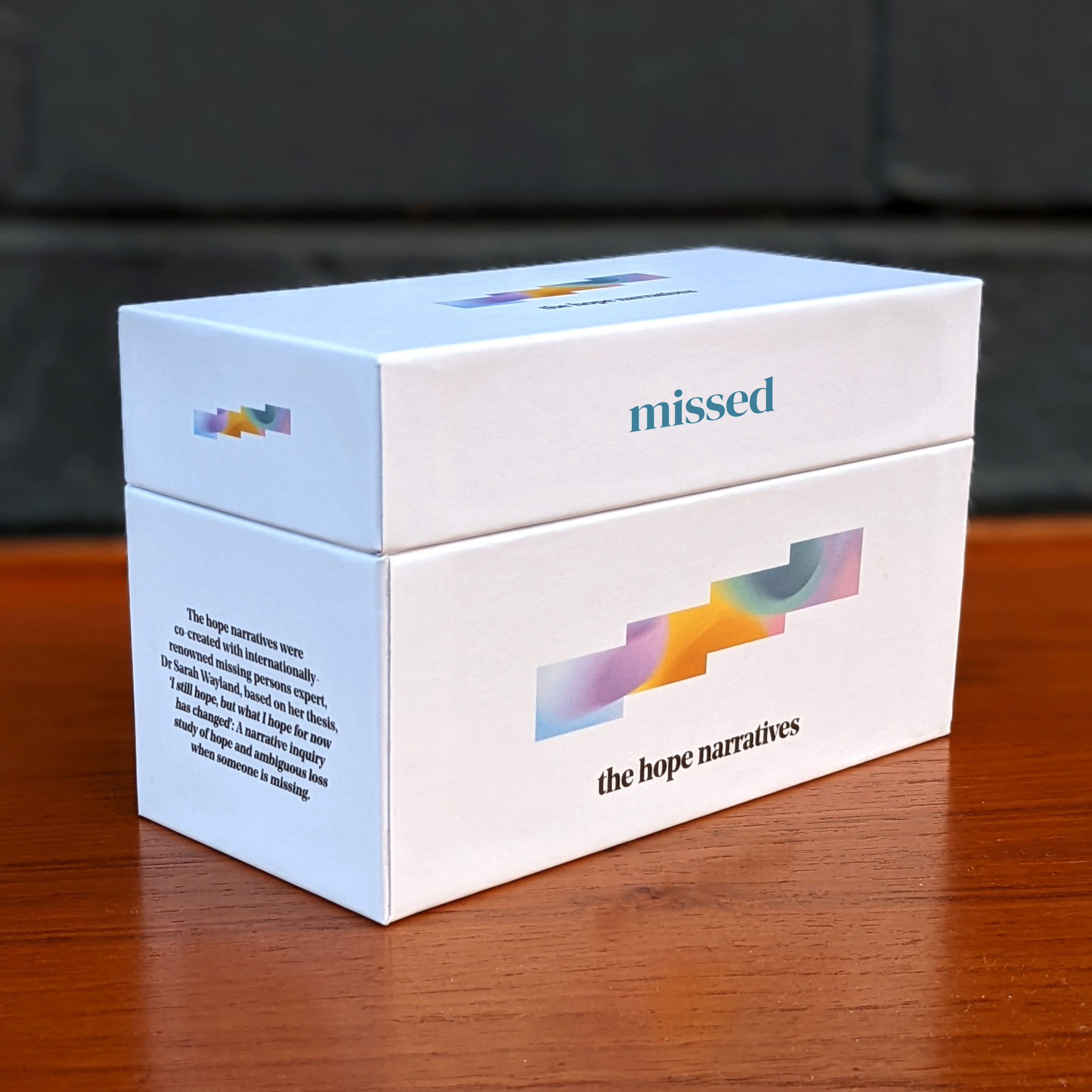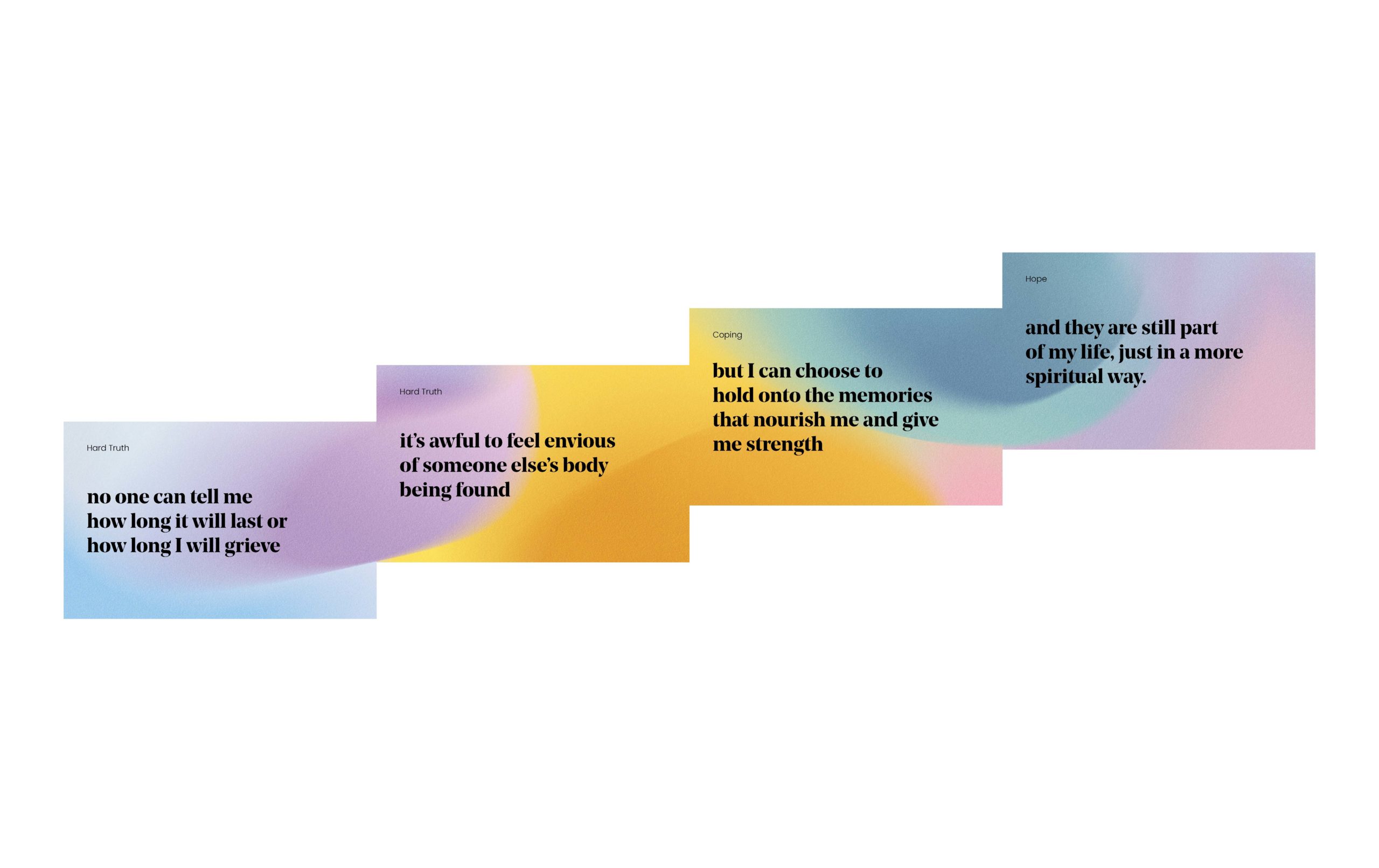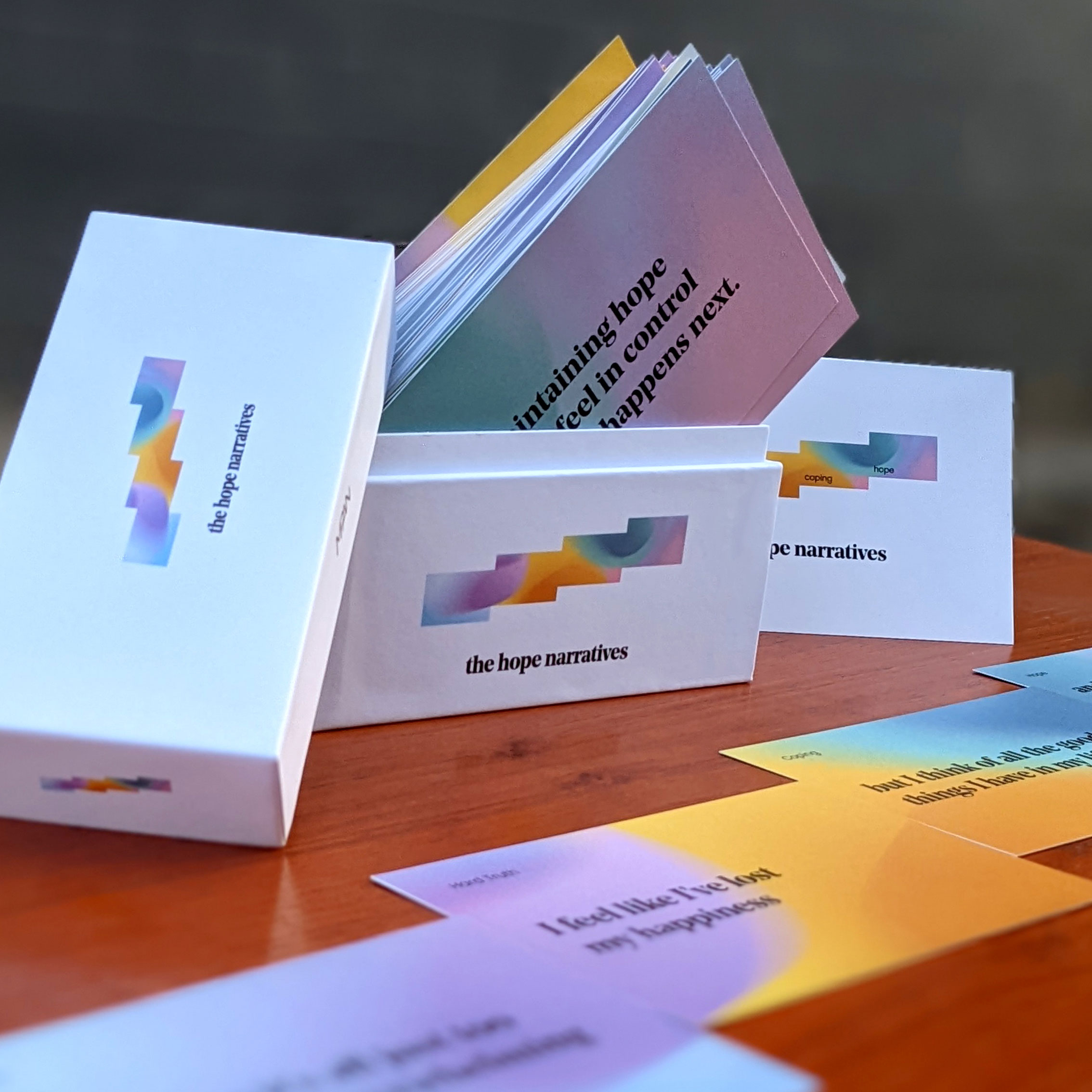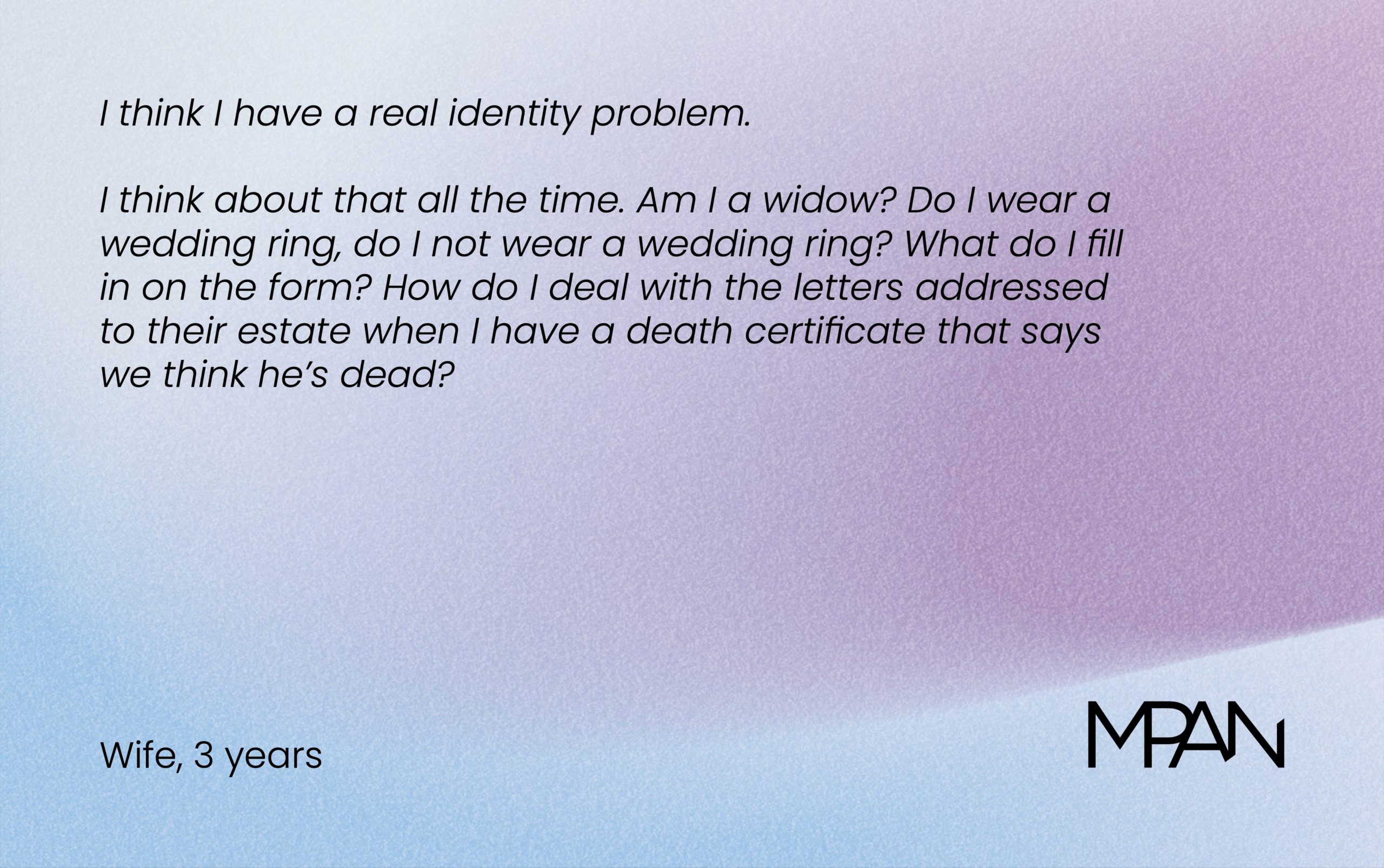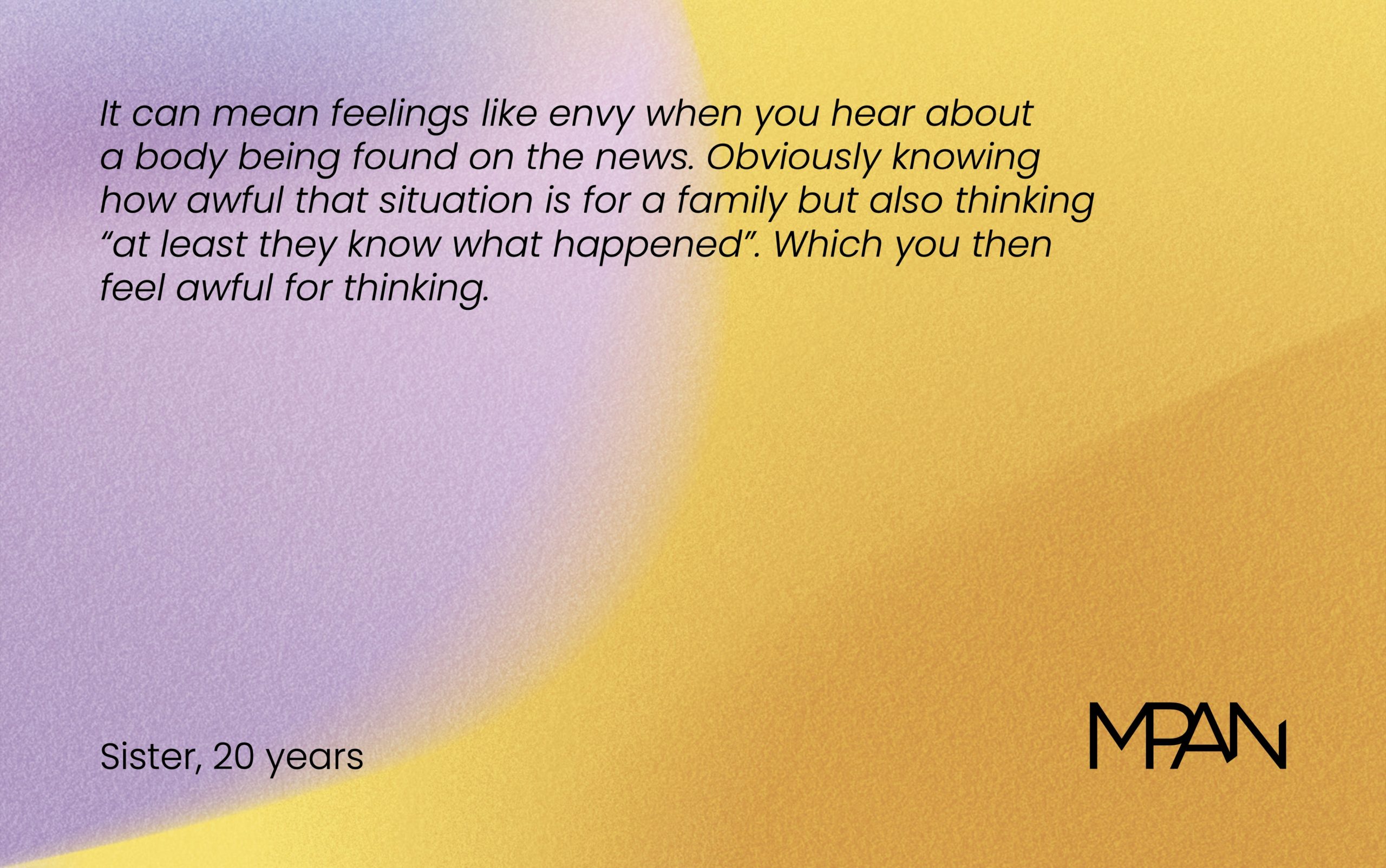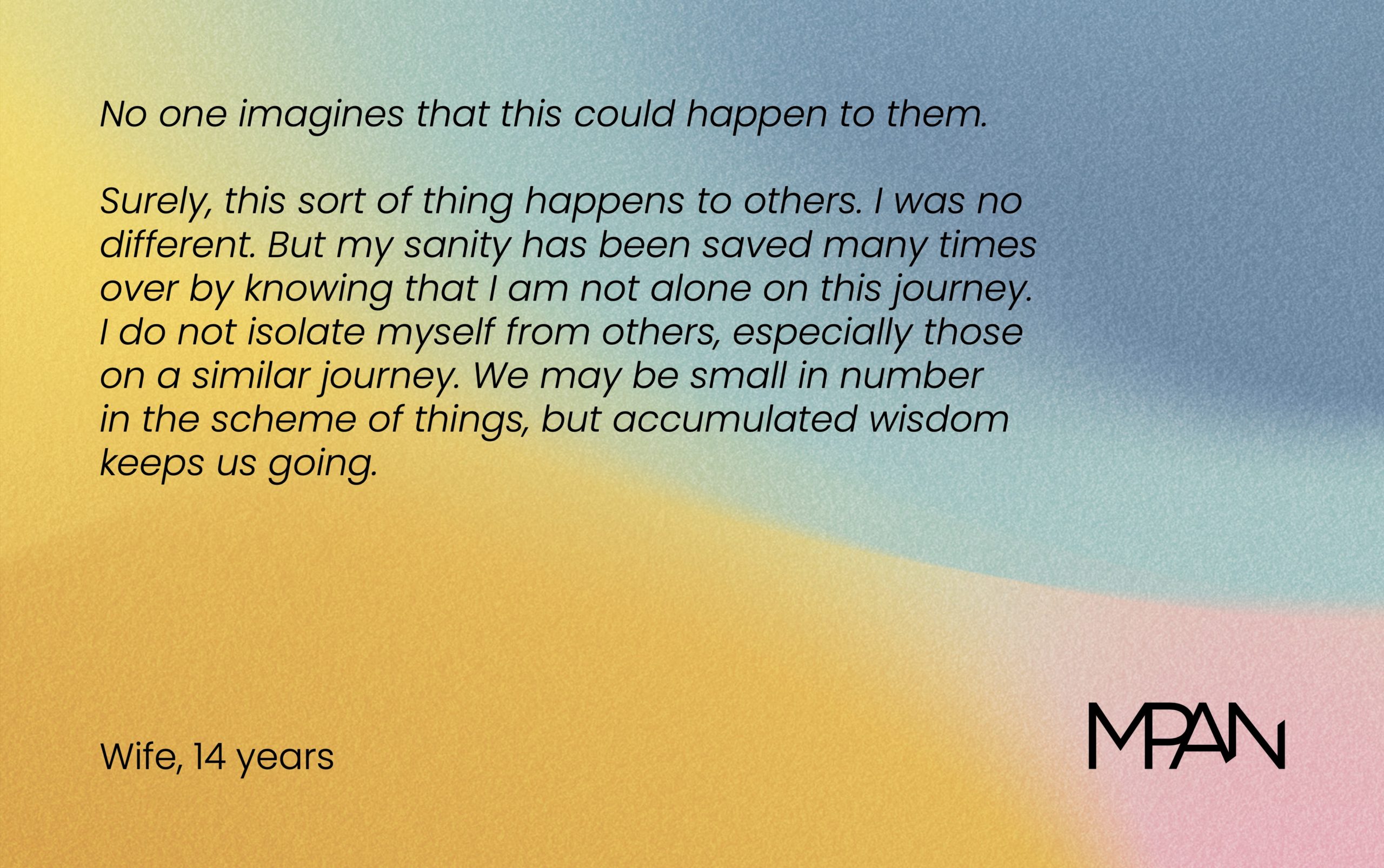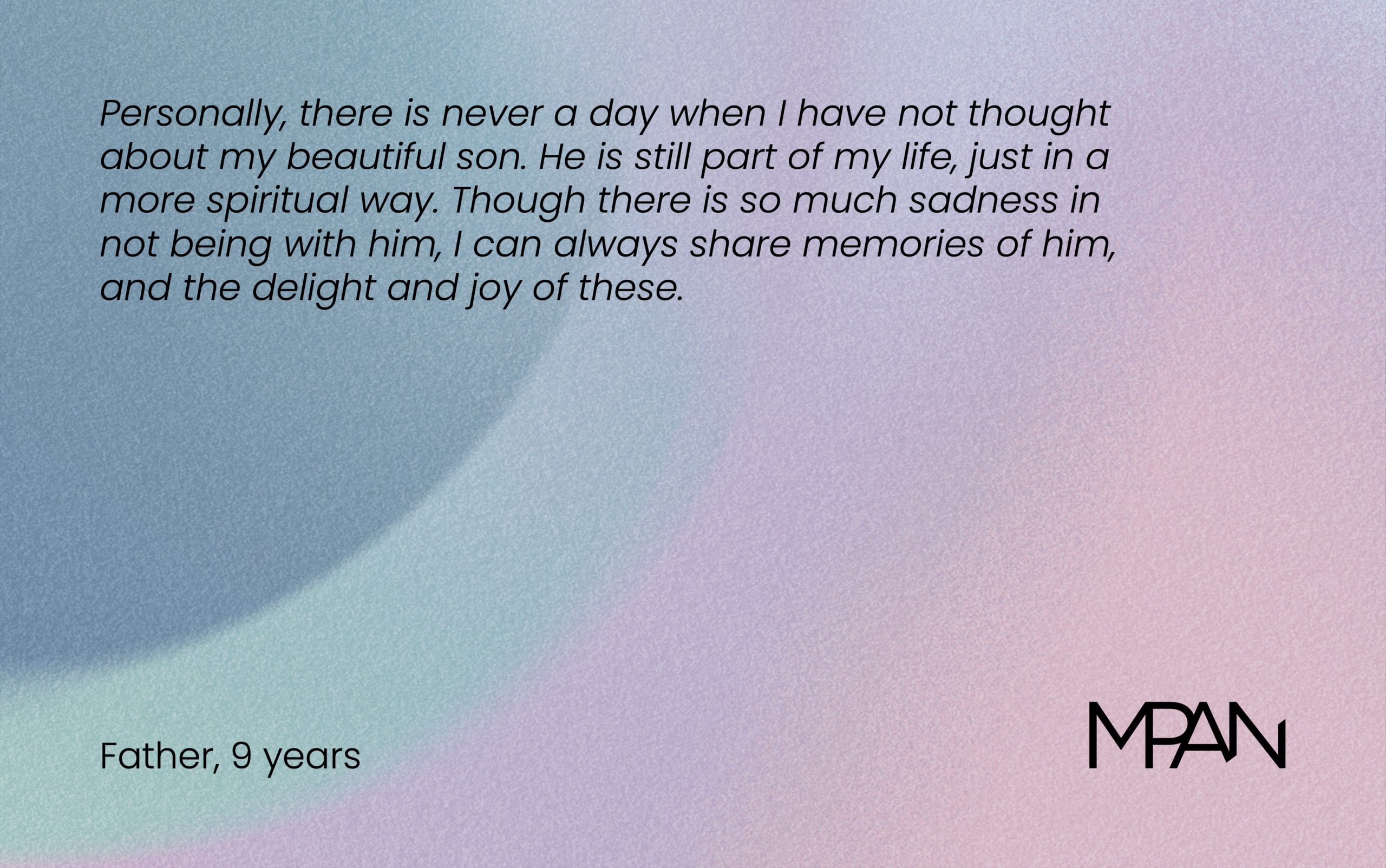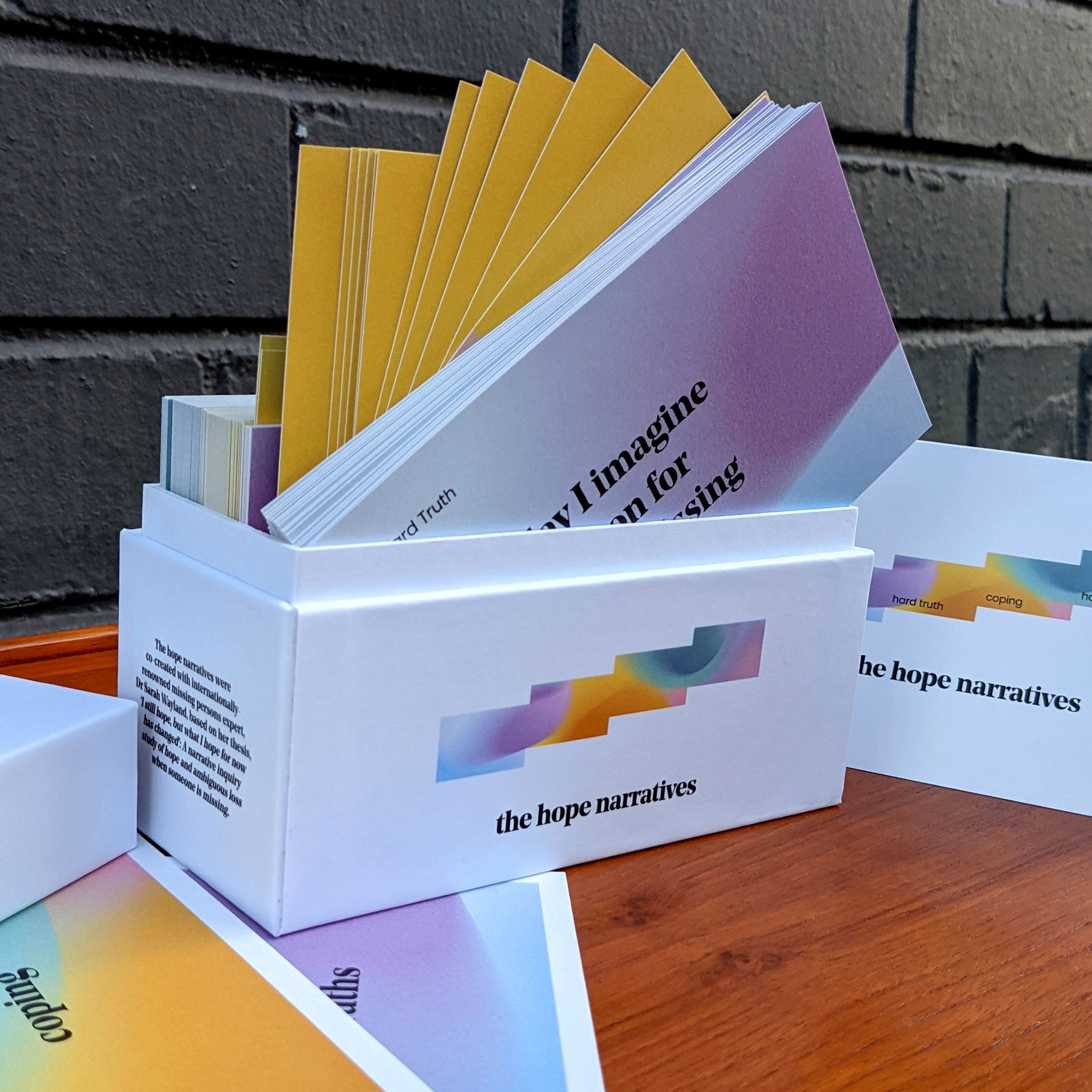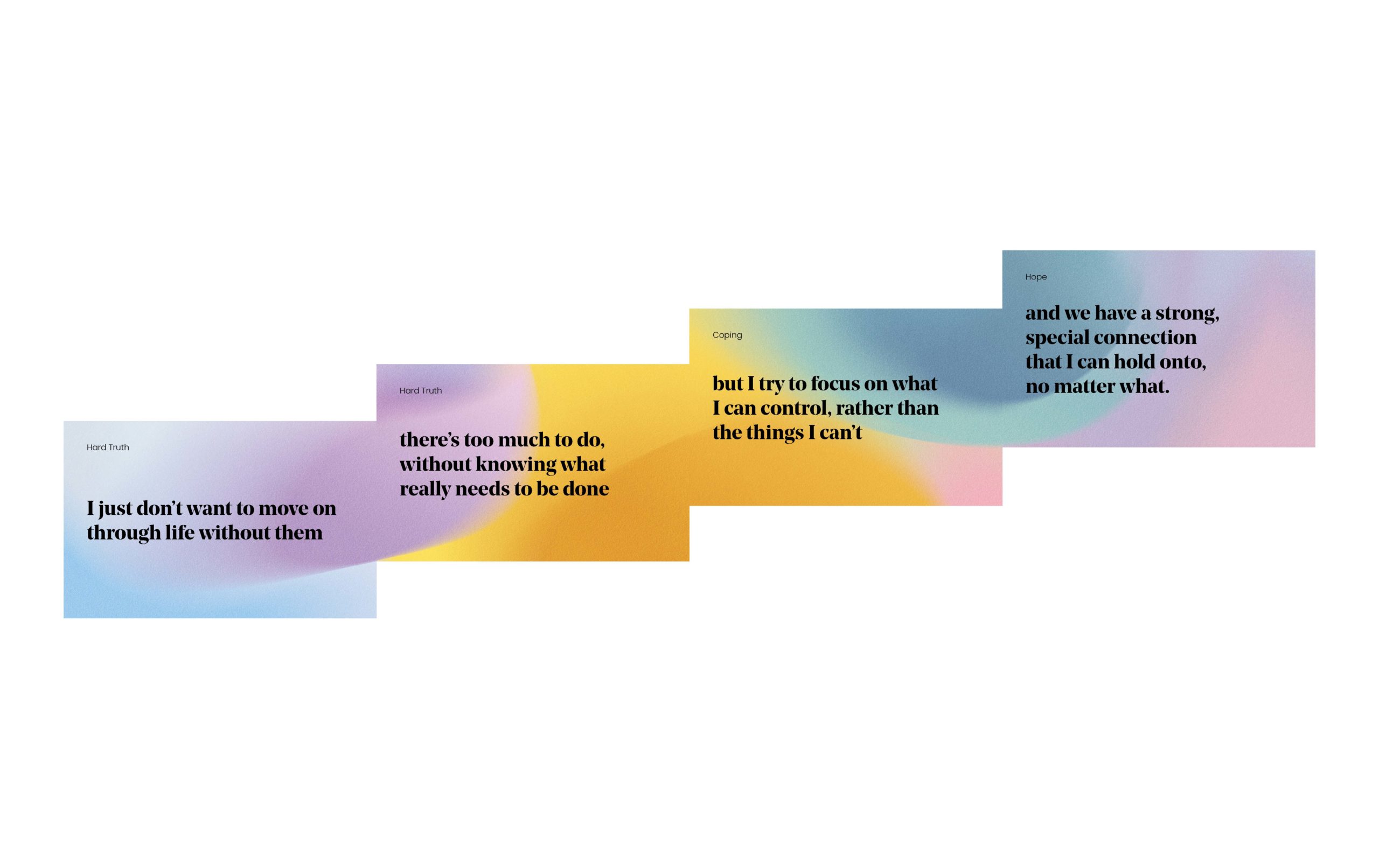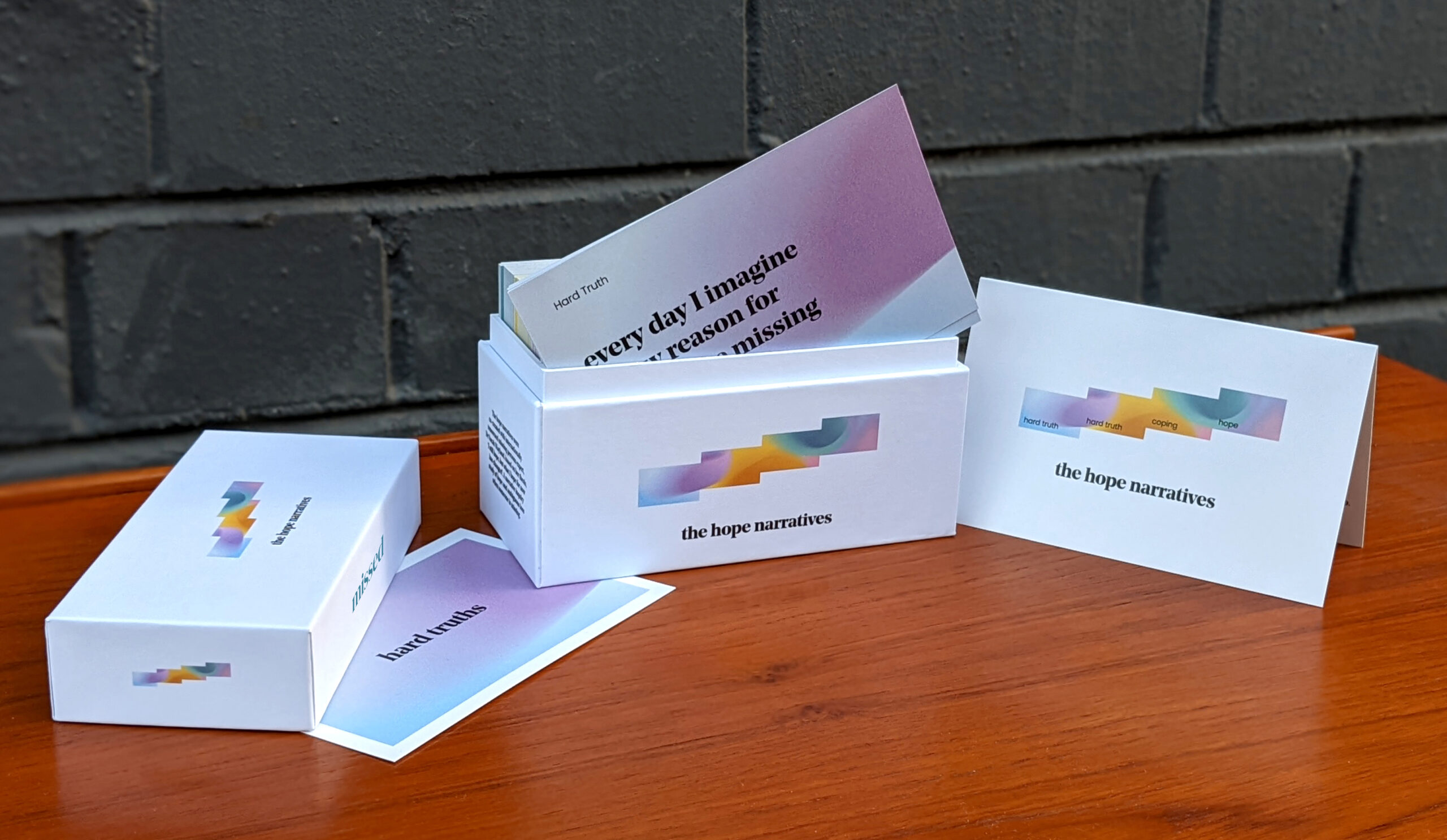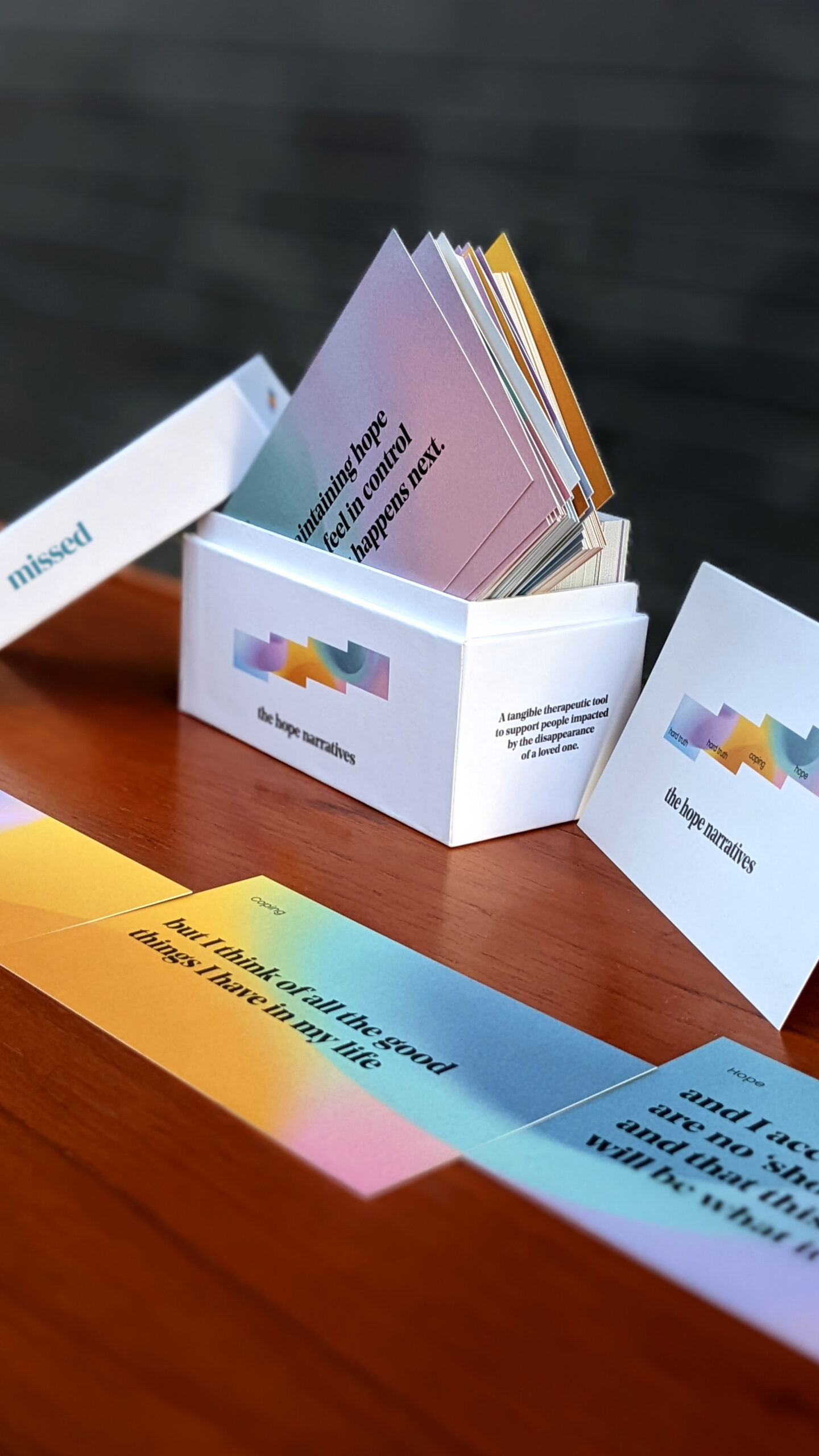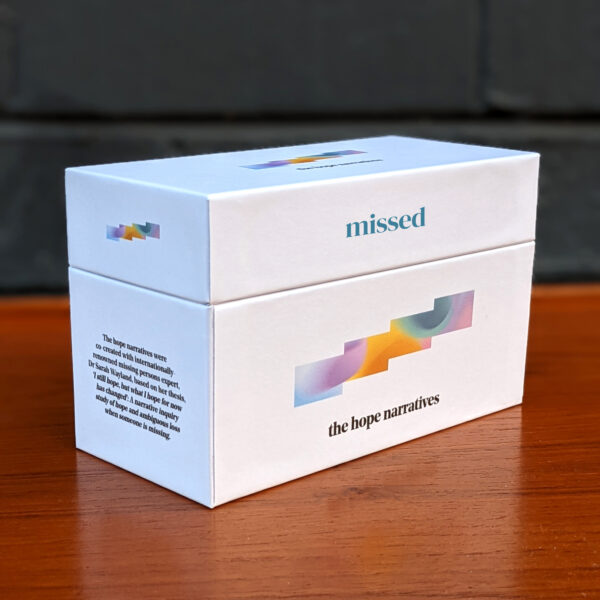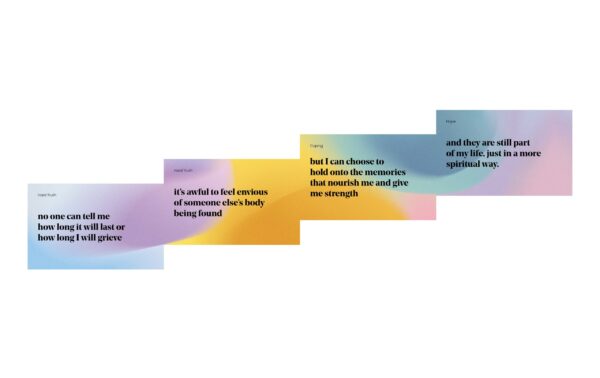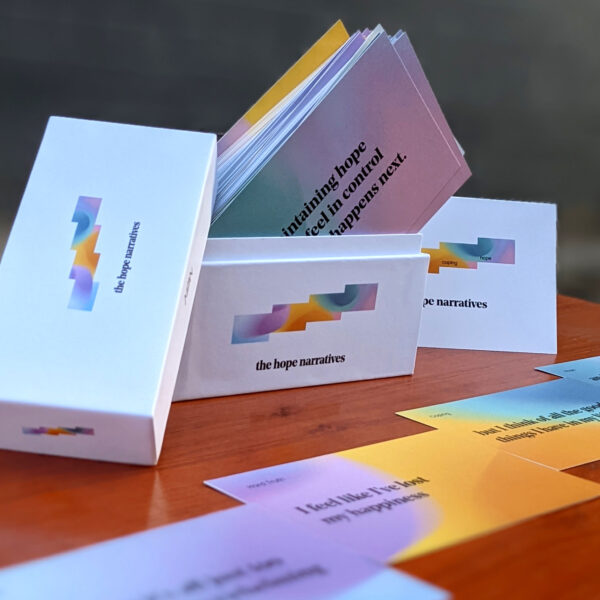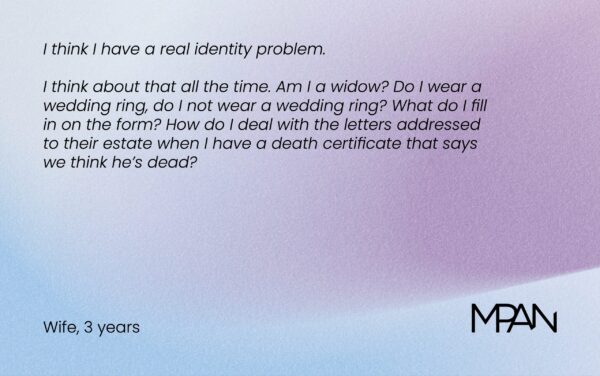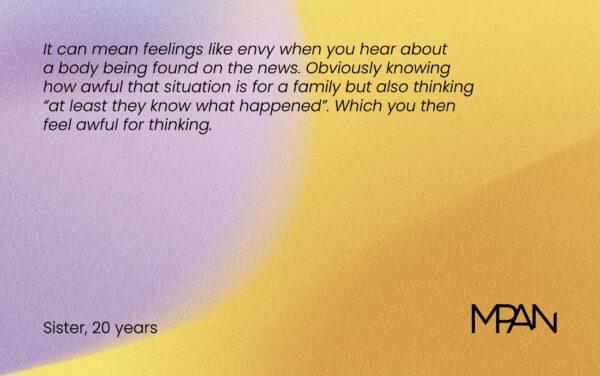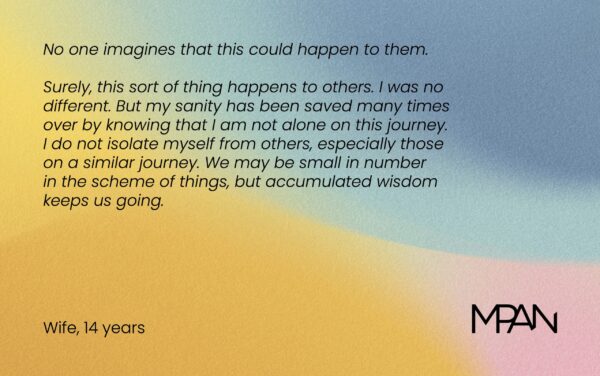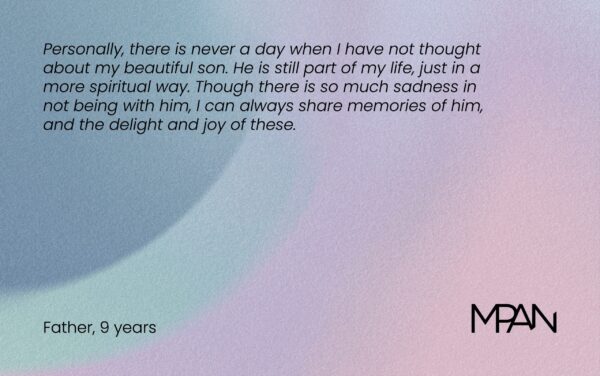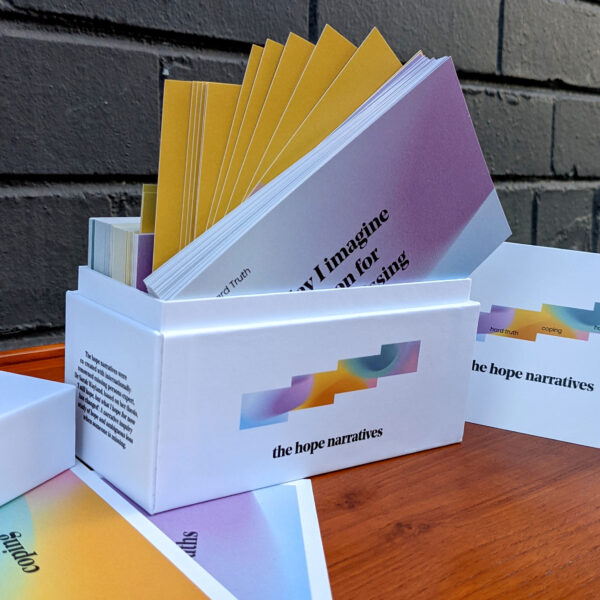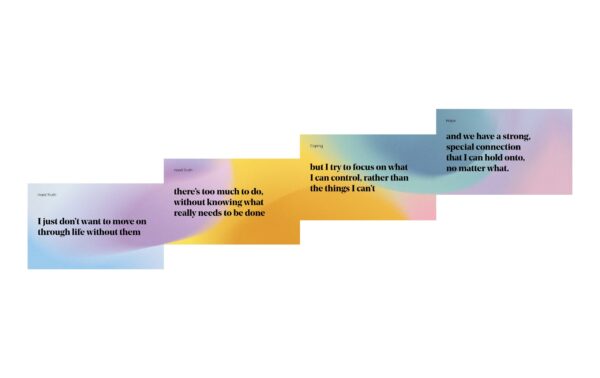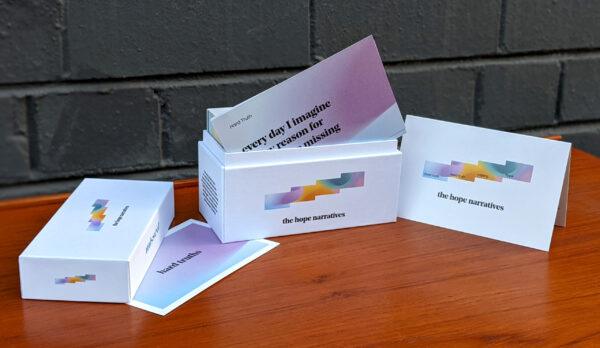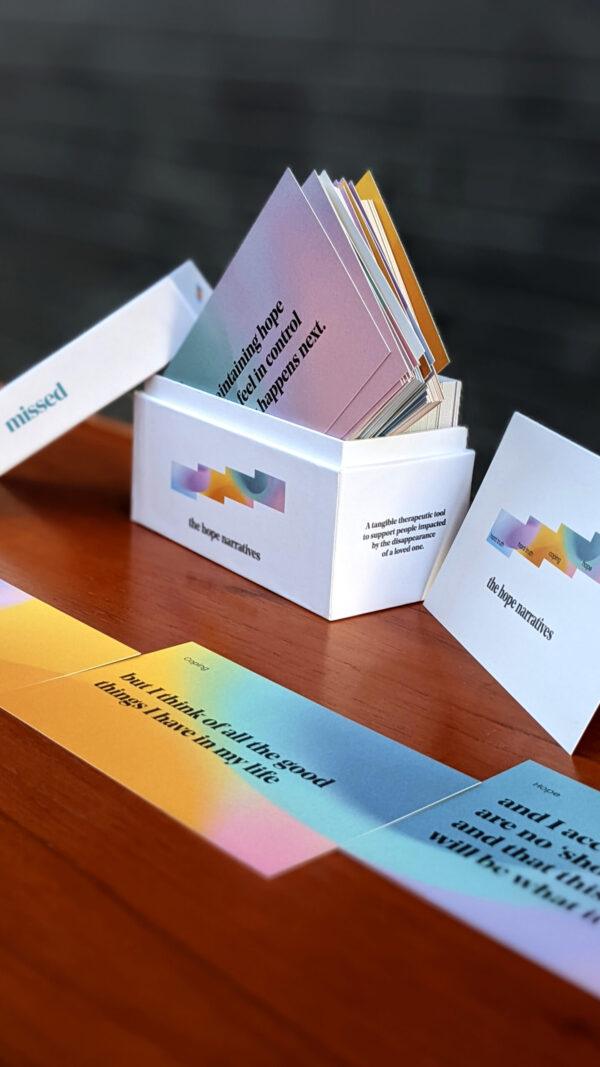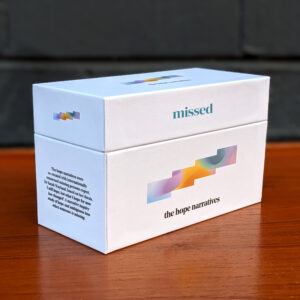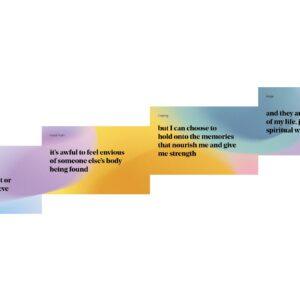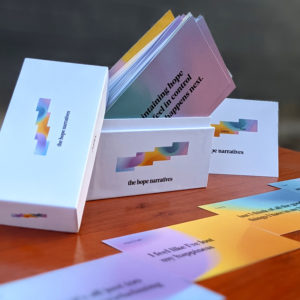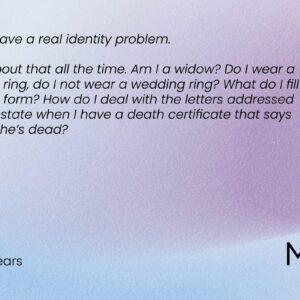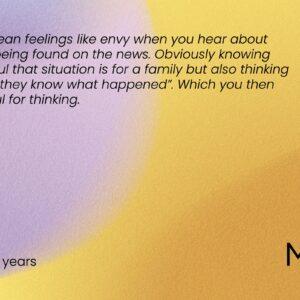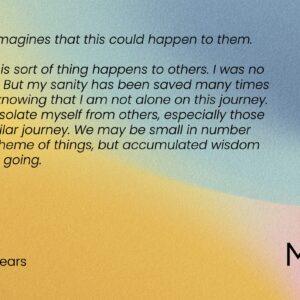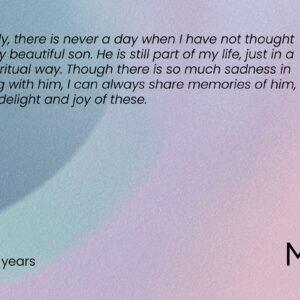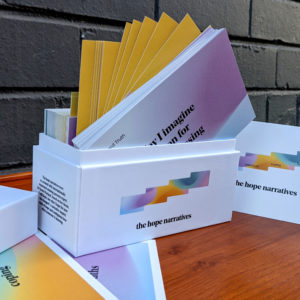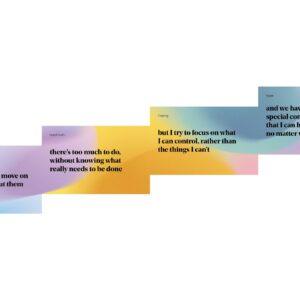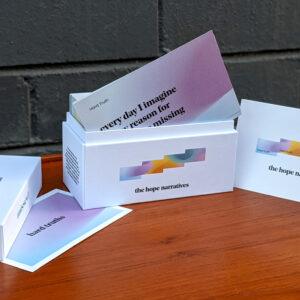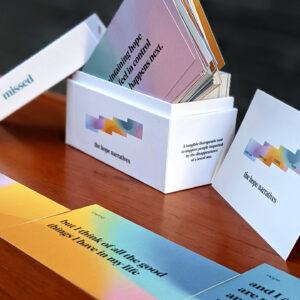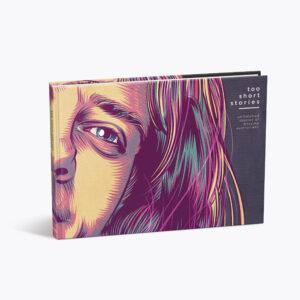Description
A beautifully designed and made set of 150 high-quality 300GSM matte film coated cards, encased in a 3mm thick, sturdy box built to last. In 2023, it won two Good Design Awards (Social Impact and Communication Design).
More than a set of cards, The Hope Narratives is a world-first therapeutic language project that we hope will help loved ones left behind navigate ambiguous loss and know they’re not alone. They also give comprehensive, powerful insights to anyone interested in gaining an understanding of what it’s like to live without knowing the whereabouts of a loved one.
We don’t want the cost of this quality-made product to be prohibitive. If you’re facing financial difficulties, please contact us.
Testimonials
They are beautiful and sad and happy and inspirational. So they are perfect. – Mother
The support and understanding for families going through having a missing loved one is limited. The cards are so relatable and familiar to how me and my family are feeling at the moment. – Sister
I sat down with them and realised, after thinking for many years I was going loopy, that other people think these things. I’m not alone in these strange thoughts and difficult feelings, and it helps me to know that. – Son
The Hope Narratives are truly beautiful and a good opportunity to provide something to help police better understand the experience of those with a missing loved one and consider that in their investigations/dealings with families. – Australian Federal Police
